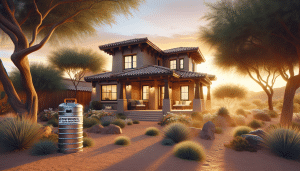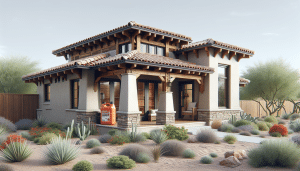When we think of termites, we often associate them with structural damage to our homes. However, these silent destroyers can also pose a threat to your garden and landscape. In this blog post, we’ll explore the relationship between termites and your garden and provide tips on how to protect your outdoor spaces from these destructive pests.
Contents
Introduction
Hello, garden enthusiasts! While we love nurturing our gardens, it’s essential to be aware that termites can pose a threat to our outdoor spaces as well. In this blog post, we’ll delve into the connection between termites and your garden and share valuable insights on how to safeguard your landscape.
Termites in Your Garden: What You Need to Know
Termites are attracted to cellulose-based materials, and unfortunately, many garden elements contain cellulose. Here are some key points to consider:
- Wooden Structures: Garden sheds, fences, and trellises made of wood can be susceptible to termite infestations.
- Mulch: Organic mulch materials like wood chips can provide termites with a source of cellulose. Using non-organic mulch or keeping mulch away from the foundation can help reduce the risk.
- Tree Stumps: If you have tree stumps in your garden, they can serve as a food source for termites.
- Wooden Furniture: Outdoor wooden furniture is also vulnerable to termite damage.
Protecting Your Garden from Termites
Now that you’re aware of the potential risks, here are some steps you can take to protect your garden and landscape:
- Choose Termite-Resistant Materials: When building garden structures or choosing furniture, opt for termite-resistant materials such as cedar or pressure-treated wood.
- Keep Wood Off the Ground: If you use wood in your garden, like in raised beds or retaining walls, make sure it’s not in direct contact with the soil.
- Remove Tree Stumps: If possible, have tree stumps removed from your garden to eliminate a potential food source for termites.
- Regular Inspections: Just as you should inspect your home for termite activity, inspect your garden structures and wooden elements periodically.
- Use Non-Organic Mulch: Consider using mulch materials that are less attractive to termites, such as gravel or rubber mulch.
- Maintain Proper Drainage: Ensure that your garden has proper drainage to prevent water from pooling near wooden structures.
- Professional Assistance: If you suspect termite activity in your garden, seek professional pest control assistance to assess the situation and recommend appropriate treatment.
Conclusion
Your garden and outdoor spaces are an extension of your home, and it’s essential to protect them from termite damage. By understanding the potential risks and taking proactive measures, you can enjoy a beautiful and termite-free garden. If you have concerns about termites in your garden or landscape, contact a professional pest control company like Arizona Termite Control Company at 480-660-3093 or visit arizonatermitecontrol.org for expert guidance and termite protection for your outdoor spaces.




